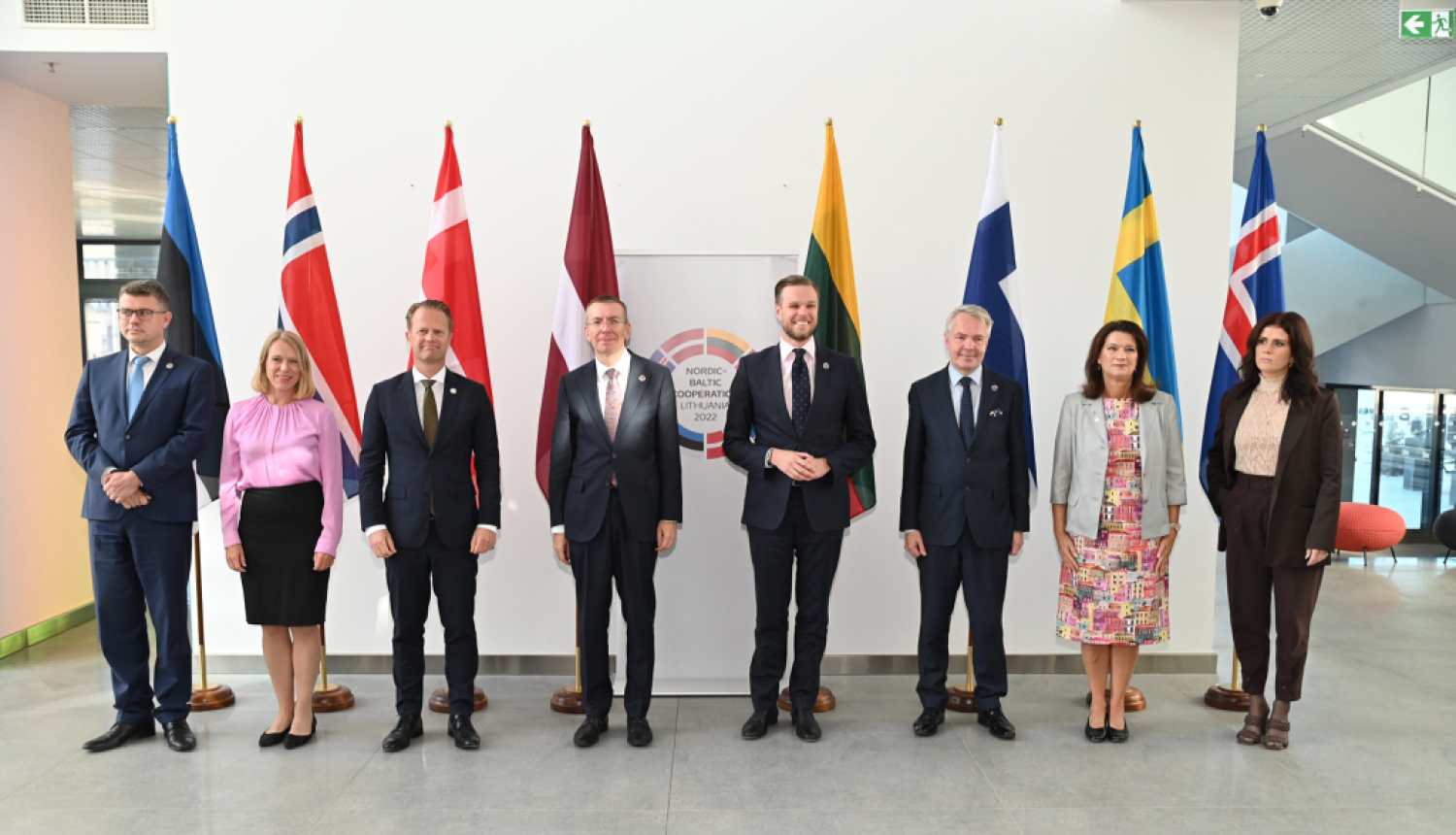On 6-7 September 2022, the Latvian Minister of Foreign Affairs, Edgars Rinkēvičs, was on a working visit in Kaunas, Lithuania, to take part in the meeting of the Ministers of Foreign Affairs of the Nordic countries and the Baltic States (NB8). The Ministers discussed the strengthening of regional security, counter-measures to Russia’s expansionism, as well as a regional approach to reinforcing energy security, and global economic challenges.
In an exchange of views on Russia’s neo-imperialist ambitions, Edgars Rinkēvičs underlined the need for maintaining a resolute and unified stand as well as continuing support for Ukraine: “Further effort must be made to maintain maximum political and economic pressure on Russia. Russia must bear full legal and financial responsibility for aggression and war crimes. At the same time, support for Ukraine must be continued in every possible way.” The Foreign Minister also noted that assistance Latvia had provided to Ukraine so far totalled 0.8% of Latvia’s GDP.
Referring to energy security, Edgars Rinkēvičs pointed out that Russia’s invasion of Ukraine and efforts to weaponise energy supplies had proved once again that we could not rely on external energy sources only. “Europe must put an end to energy dependence on Russian gas, oil and coal imports as soon as possible,” Edgars Rinkēvičs underlined. At the same time, the Minister indicated that current state of play was urging us to speed up transition to clean energy, as well as facilitating interconnections between countries in the Nordic and Baltic regions and carrying out joint projects.
In a discussion on the outcomes of the Madrid Summit and preparations for the NATO summit in Vilnius, Edgars Rinkēvičs underlined the need to implement decisions made in Madrid in a focused manner, so that progress could be made ahead of the meeting in Vilnius. The Foreign Minister also welcomed the fact that, with Russia having been recognised as the most significant threat to the Alliance, the presence of NATO in its eastern flank would be increased.




